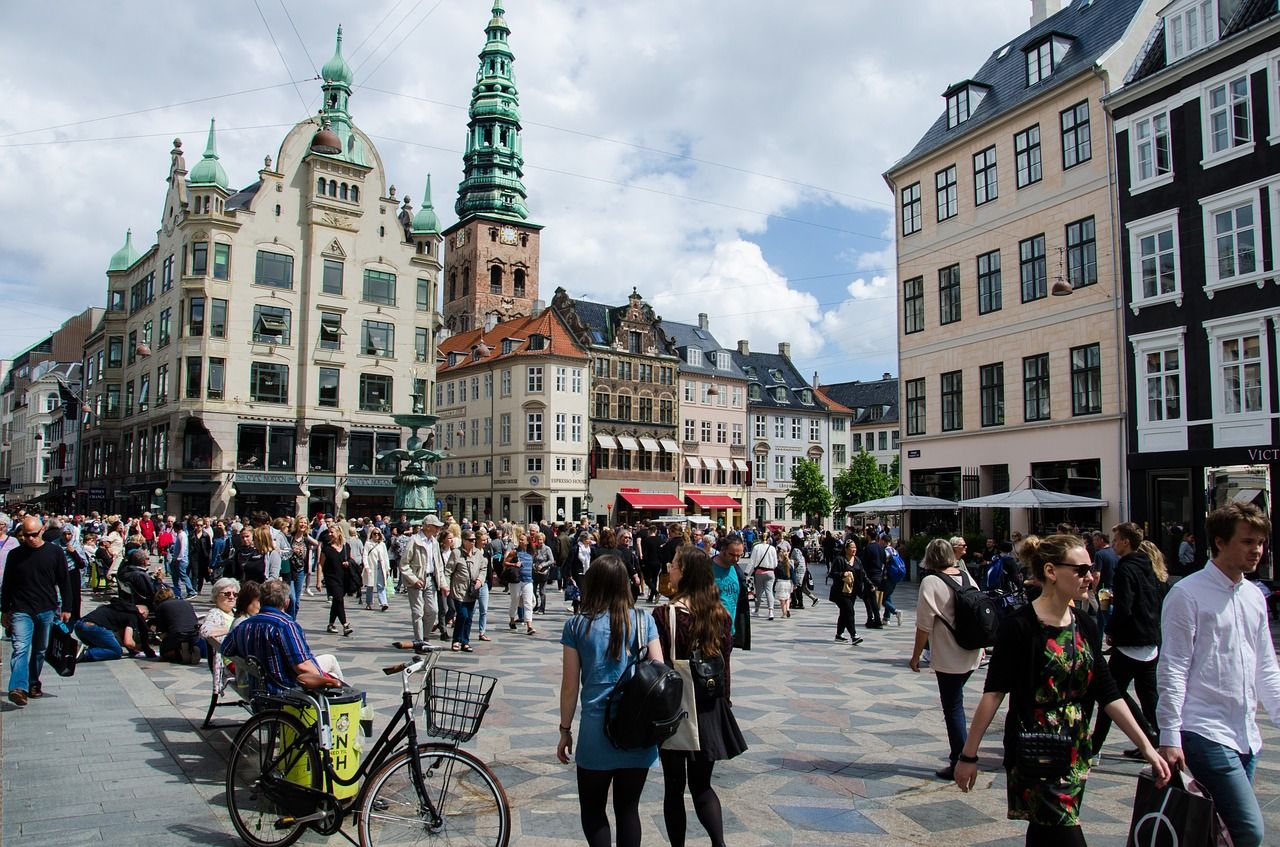The population of the Capital Region grew from 1.214 to 1.346 million between 2012 and 2022 – a substantial 11 percent jump in line with similar increases in the urban areas of Aarhus (up 33,000 to 285,000), Odense (up 12,000 to 181,000) and Aalborg (up 15,000 to 120,000).
Denmark’s population, though, only rose by 5 percent, while numbers in rural areas actually declined by 3 percent.
Average age far lower in cities
The average age of somebody living in Denmark is currently 41.6.
In the big cities it is 37.8, in the capital region 38.4 and in rural areas 43.1.
Number of gambling addicts has doubled since 2017
The number of adults in Denmark with a gambling addiction has doubled over the last five years to 500,000, according to the latest Danish Gaming Authority-commissioned report by Rambøll. A further 24,500 people aged 12-17 are thought to also be addicted – about 6 percent of the age group. The gaming authority falls under the auspices of the Tax Ministry and its minister, Jeppe Bruus, has promised new initiatives to combat the problem.
How a quarter of a billion will be spent on green heat
The Ministry of Climate, Energy and Supply has confirmed how 250 million kroner earmarked for green heat initiatives will be spent. In total, there are eight initiatives aimed at phasing out the use of gas and providing more green heat in the future. Huge efforts will be made to encourage homeowners to scrap their gas boilers and invest in heat pumps whilst further rolling out district heating. All the funds will be spent this year.
New Danish social media laws miss their window
Proposed Danish legislation to tighten up social media rules to protect the public will need to be redrafted with new EU rules on the way. It is commonly perceived that Parliament has missed the window after dragging its heels over new rules that would have required social media providers to take down all illegal content within 24 hours of it being posted. The new union-wide rules, the EU Digital Services Act, should be introduced in mid-June.
Justice Ministry to address rape compensation discrepancies
The Justice Ministry will address the minimum compensation amount paid out to victims of rape following a Supreme Court decision in February that upheld a payment of 35,000 kroner to a woman who was raped but not subjected to violence. According to the law, victims should receive a minimum of 100,000 kroner and victims of attempted rape 40,000-53,000 kroner. SF’s legal spokesperson, Karina Lorentzen, brought the matter up with the justice minister, Mattias Tesfaye, in light of the Supreme Court’s decision, which was thought to be influenced by the woman being drunk and fatigue.
Danish Parliament scanning MPs’ phones for spy software
The Danish Parliament’s IT department has equipped itself with the necessary software to detect the spy software Pegasus on MPs’ phones, reports Jyllands-Posten. All it takes is a phone call and Pegasus will install itself, thereafter monitoring all of the phone’s activity. “We are ensuring that our MPs’ phones are continuously updated with the latest version,” noted Johanne Albjerg, the head of the department. Pegasus, which was developed by Israeli company NSO Group, has been sold to countries to help them fight terrorism and crime. But now it is being used for espionage purposes.
Concerns about electric wiring at music festivals
The Sikkerhedsstyrelsen safety technology authority has expressed concerns about the quality of the wiring at musical festivals and other temporary outdoor venues ahead of a busy program this year. Last year, it checked 30 venues and found that 37 percent had faulty wiring. Most were minor festivals or marketplaces. Furthermore, one in five had an incorrectly installed residual current circuit breaker – the device that should safeguard people against electric shocks. Fortunately, however, there were no reports of any electrical accidents at festivals last year, according to Sikkerhedsstyrelsen.











